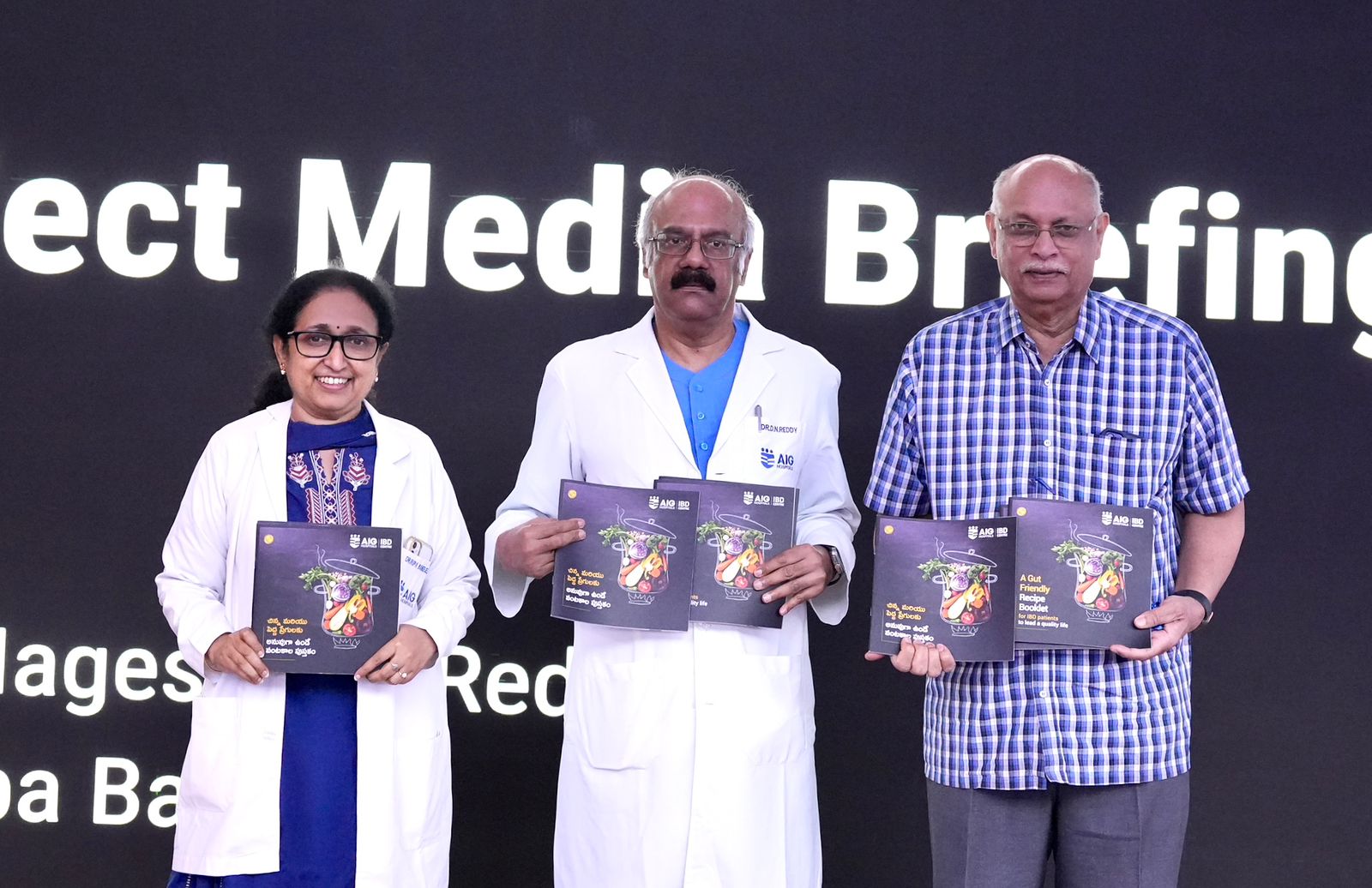Hyderabad: The city-based AIG Hospitals, one of India’s largest tertiary care facilities, on Friday, which is observed as World IBD Day, shared some scary statistics on the rampant increase of Inflammatory Bowel Diseases in our country.
“What looked like a disease of the West 25 years ago is now increasing at an exponential rate in our country and the predominant reason can be attributed to the change that we have taken in our dietary habits,” said Dr. D Nageshwar Reddy, the Group of Hospitals Chairman, while addressing the media.
“Currently, it is estimated that over 1.5 million people will be affected by IBD in India each year. Characterized by persistent diarrhea, abdominal pain, unintended weight loss, fatigue, and rectal bleeding, diagnosis of IBD is also challenging as the symptoms overlap with many other diseases including TB,” Dr. Rupa Banerjee, Director – IBD Center, AIG Hospitals said.
“The biggest concern is that close to 20% of IBD patients belong to the Pediatric category which not only is hampering their physical growth but taking a toll on their parent’s mental wellbeing. To address these, we did a massive pan-India survey to see how diet is impacting patients suffering from IBD and found that it is evident that those who are having processed foods, skipping their meals, and not following the specified diet, are likely to experience continuing symptoms of IBD. We also found that the majority of Pediatric IBD patients are not able to adhere to the special diet and therefore it is of extreme importance to make these special diets more palatable,” said Dr. D Nageshwar Reddy further added.
Present at the occasion was Dr. Sesikeran Boindala, Former Director, of the National Institute of Nutrition, Indian Council of Medical Research (ICMR) who said “Although even simple wheat flour is a kind of processed food, the concern is with those highly processed food items like factory made bread, chips, or even processed meat products. The simplest rule that one can follow is to avoid WHITE color products, like Maida, Sugar, and Salt, and choose healthier alternatives such as whole wheat flour, raw cane sugar, etc.”
“The survey was designed in a scientific manner capturing all the requisite data about various kinds of food and ingredients that IBD patients consume across India. Preliminary analysis does indicate that some South-Indian traditional recipes are better suited for the gut and therefore we launched the Gut-friendly Recipe booklet featuring these modified South-Indian recipes,” Dr. Rupa Banerjee continued.
AIG Hospitals runs India’s largest IBD Patient Support Group and has created the IBDENC (Emerging Nations’ Consortium) platform for collaboration on IBD research with more than 1000+ medical professionals representing 25+ countries.
“We have our India IBD Support Forum with over 1300 IBD patients and on World IBD Day, it was appropriate that we extend the same in our IBDENC network to begin with we are happy to start the Bangladesh IBD Support Forum which will be managed by IBD Specialist, Dr. Masudur Rahman from Sheikh Russel sheik GastroLiver Institute & Hospital, Dhaka. Technical assistance will be provided by AIG Hospitals. This will add another chapter in the evolving space of Patient Advocacy in our geography,” Dr. Rupa Banerjee further added.
The Diet Booklet was launched by Dr. Sesikeran Boindala, who also applauded the efforts made by the IBD Center of AIG Hospitals in coming up with such an initiative that predominantly focuses on dietary therapy for chronic diseases like IBD.
“Today, it is our sincere endeavor to encourage people to start taking their diet seriously by completely avoiding highly processed food items like Maida, etc., because is the single most important factor in deciding not just your gut health but overall wellbeing as well,” Dr. Reddy concluded.
The Gut-friendly Recipe Booklet is available for free for anyone. If anyone wishes to receive a copy of the same can email the request to academics@aighospitals.com.







